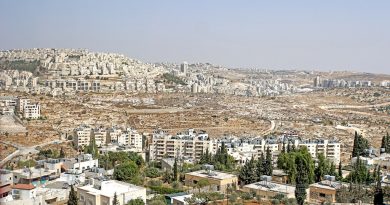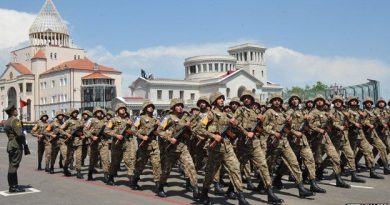Protests in South Africa Call for Deportations Amid High Unemployment
Ana Medina
Staff Writer
Protestors and immigrants were broken apart by the South African police during the protest against foreign workers on February 24. Police fired rubber bullets, tear gas and stun grenades at the masses. Hundreds of protestors marched towards the foreign ministry to demand the deportation of immigrants who are taking South Africans’ jobs, as described by Al Jazeera. Currently, South Africa‘s unemployment rate is above 25 percent. The South African officers tried to keep both groups, armed with sticks and pipes, from coming in contact with each other, as immigrants were trying to express their concern over the massive resentment-generating against them. Al Jazeera’s Tania Page, reporting from Johannesburg stated, “there was a standoff between 100 protesters and 100 or so mostly Somali nationals who had come out onto the streets … saying they would defend themselves, their families homes and businesses.” It was also reported that protesters submitted a petition to the ministry calling for the government to teach foreigners how to “speak properly”, according to the Associated Press.
Mamelodi Concerned Residents, the main group behind these anti-immigrant protests, blamed foreign nationals for taking South Africans’ jobs and accused them of being involved in prostitution rings and drug cartels, as reported by the BBC. The group added how foreigners were “arrogant and don’t know how to talk to people, especially Nigerians.” The opposing Democratic Alliance (DA) blamed the government for its poor leadership and expressed that the rise in xenophobic violence is the result of the ANC government’s failure to create jobs and to equip people with the necessary education and skills to find employment.
Protesters gathered outside President Jacob Zuma’s office demanding him to step down from power in November 2016. According to The Guardian, President Zuma has been involved in multiple corruption scandals including an ongoing one, which was first discovered in May 2014 where he used more than $20 million in state funds to upgrade his rural home. Business executives, religious leaders, and others met on November 2, the same day of the demonstration, at Pretoria Cathedral to urge the president’s resignation and claimed that the corruption linked to Zuma is undermining Africa’s economy.
President Zuma is calling for peace to alleviate the situation. He stated that many foreigners living in South Africa are law abiding and positively contributes to South Africa’s economy, and that it is incorrect to label all foreigners as drug dealers or human traffickers.
The News Tribute mentions how Amnesty International released a statement blaming the government for failing to “address toxic populist rhetoric that blames and scapegoats refugees and migrants.” Though South Africa is trying its best to contain the situation and not give a bad image to the world, many South Africans are demanding a change.


